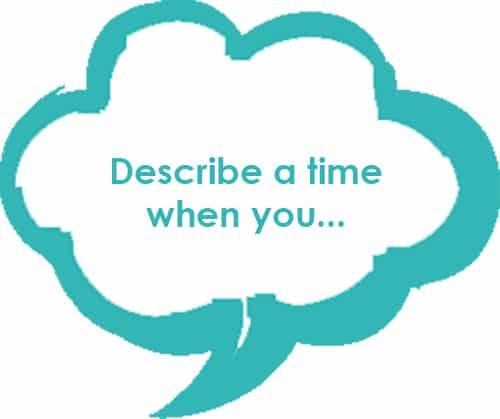This article is part of the “Interview Questions tips” series.
Competency based interviews have become standard practice when applying for jobs in the UK, as opposed to skills or education based interviews. A competency based interview consists of an employer asking questions that determine and test your knowledge of different areas key to the job you are applying for, and examine your outlook and attitude towards managing day to day tasks, problem solving, and crisis abatement. Competency based questions very often, if not always, require candidates to present real-life examples of how they managed in a specific situation, as well as how they handled their daily duties.
Answering competency based questions requires some thought, but if you are well prepared for your interview, you will know how to answer them. Here are five typical competency based questions you may be asked to answer during your interview.
1. Your Level of Organization
Most, if not all, employers value high levels of organization in prospective candidates. Employees who are organized tend to be more productive and, in supervisory positions, perform competently by providing project frameworks and details in a timely fashion and staying on top of tasks that need to be accomplished, especially if they must be done quickly.
Questions in this arena may examine how you managed several projects at once, particularly if you had to prioritise, or if you had to work on a project that involved multiple departments. Be prepared to answer questions on project management, managing communication and securing assistance, and tools that you used to keep everything rolling smoothly.
2. Your Communication Skills
Communication skills are a must in any successful company, and you will be presented with questions on your communication skills at every interview you attend. Whether you are a good communicator via speech or writing, be prepared to discuss this essential skill with your employer, and indicate what channels of communication you work best with.
Questions in this arena usually include detailing situations in which your communication skills helped solve a problem or defuse a conflict; they may also inquire into a situation where your communication skills failed, and what you did to redress the problem. As with any question that inquires about your failures, it is important to be honest – both about the failure and about how you sought to address it. Be prepared to answer both of these inquiries constructively and clearly.
3. Your Decision-Making Abilities
In the absence of advisement, good decision making abilities are important. Many supervisors value employees who do not constantly need to be told what to do – and are capable of making decisions about execution, prioritisation, and methodology. Being a good decision maker in difficult decisions is also a valuable quality, especially if you are applying for a supervisory position.
Expect to be asked about a time where you had to make a difficult or complicated professional decision, and whether it yielded positive or negative results. Be prepared to explain what you learned from either situation, and how these experiences may have improved your decision-making ability. Once again, be frank.
4. Your Ability to Recover from Failure
“Failing forward” has become something of a catchphrase in professional circles, and with good reason. One’s ability to recover from and learn from failure not only develops their professional capability, but serves to assist the growth and development of those they work with by communicating those lessons to one’s co-workers.
Almost every interviewer will inquire about a time you failed to achieve something, or a situation in which your skills were not equal to the problem. Answer this question very honestly, and be prepared to discuss the subsequent results. Think very carefully about what you learned from the situation, and if it prompted you to develop your skills in a particular area further. Demonstrating that failure prompts you to work harder and smarter can be key to helping you secure a position.
5. Your Ability to Be a Team Player
While some people work best alone – and you should say so if this is the case – learning to work as part of a team is still a critically important skill, particularly with regard to high-stakes or large projects.
Be prepared to answer questions about times you worked as part of a team, and what you contributed to the team or project you were assigned to. Talk about how your skills complemented those of your other team members, and what you were able to achieve together versus what you were able to achieve singularly.
Preparing for a competency based interview is a detailed but fairly easy process. Almost every job search engine will offer interview preparation tips and articles on handling these interviews impressively and competently. By taking the time to prepare for these interview questions, you will stand a greater chance of landing the position you want – and staying in it.
